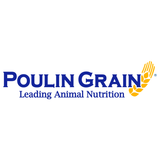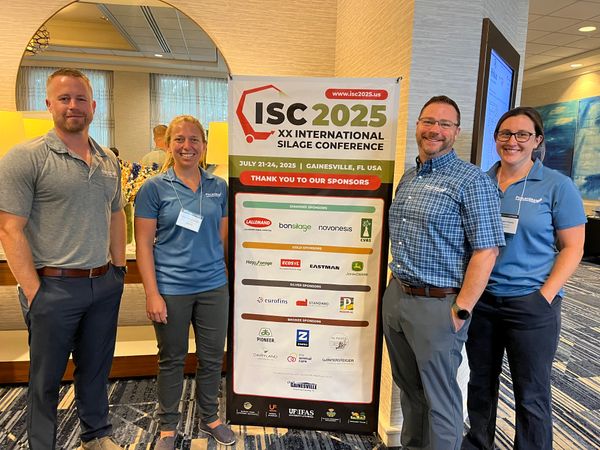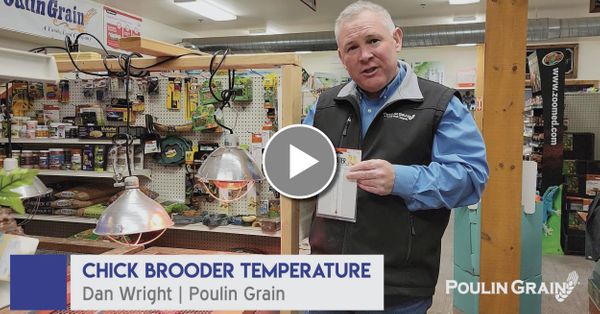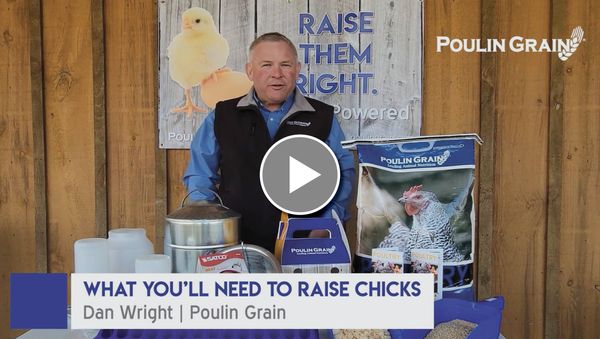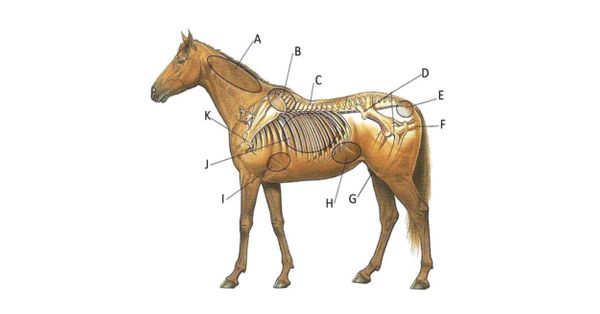Farm Feature: Small details lead to big success at Dimock Farms
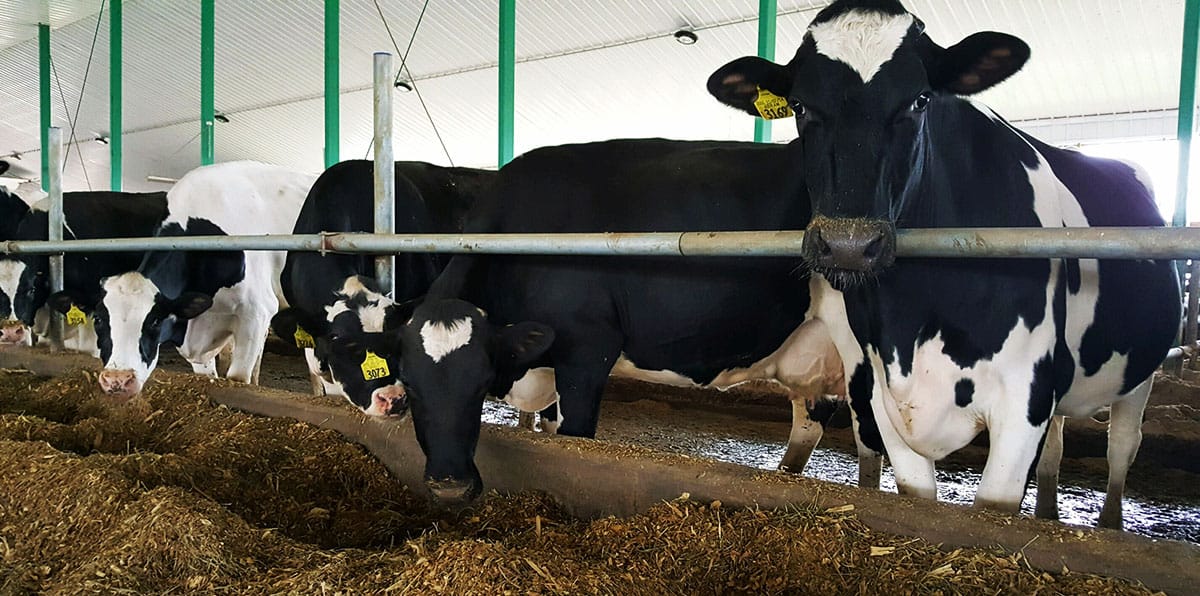
As margins grow tighter, simply following major management recommendations isn't always enough for a dairy farm to stay competitive. That’s why every detail is a big deal at Dimock Farms in Peru, New York.
Dimock Farms was founded in 1971 by Don and Martha Dimock. Today, Don is in partnership with his son Bruce, who manages the crops and feeding. Don’s daughter Anne, his grandson Sam, Sam’s wife Karlie, and herdsman Greg Palmer round out the Dimock Farm team.
Milk Quality
In 2007, Dimock Farms won the highest milk quality award out of over 1,300 Agri-Mark Cooperative members. On top of that, Dimock Farms has also been undefeated for best overall milk quality in their cooperative’s region (Agrimark Northeastern NY Region 11) every year since 2004. What’s their secret? According to Don, “Excellent milk quality starts with mastitis prevention. Chronic mastitis cows who do not respond to treatment are culled from the herd. We also use a barrier teat dip on any cow with less than perfect teat ends, and cow hygiene is a top priority.”
The cows’ stalls are bedded weekly with fresh screened sand, which is hauled in from a local sand pit. They even take the time to cover the load of sand with silo plastic after it is delivered, just to keep it dry. Alley scrapers cycle every 3 hours, and they do not overcrowd their pens, which improves cleanliness and cow health. For the Dimocks, this attention to detail pays off – they receive the top-quality premium of $0.60/cwt offered by their cooperative each month for maintaining a cell count under 100,000. This milk quality bonus is coupled with a higher pay price due to excellent components: Dimock Farms averages 6 pounds of solids by producing over 80 pounds of milk with a 4.2% butterfat and 3.25% protein.
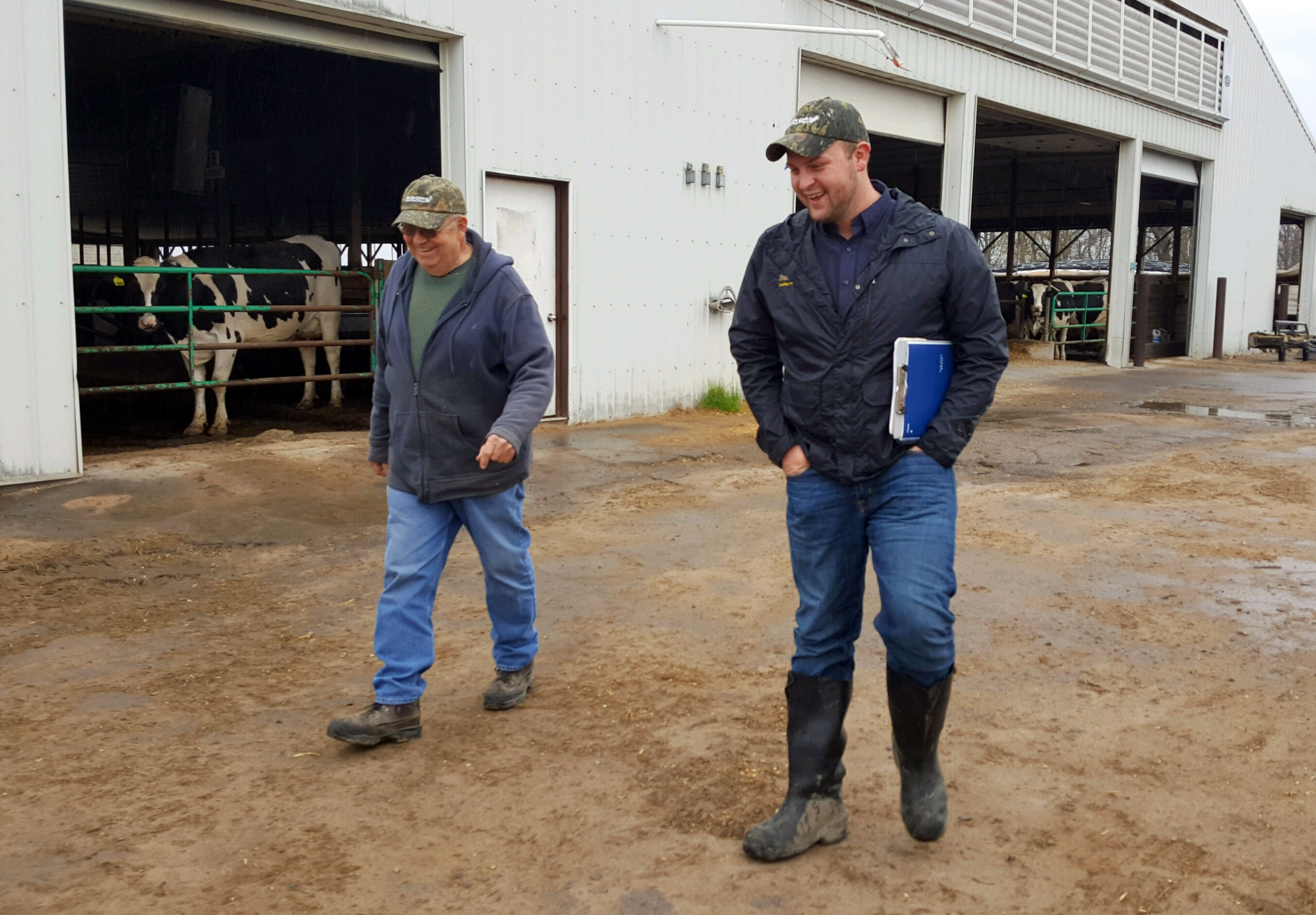
Farm owner Don Dimock (Left) and Poulin Grain Dairy Nutrition Consultant (Right) discuss strategies to improve the farm’s economic viability and cow health.
Feeding Management
The best feeding starts with quality forages harvested on time and at the appropriate dry matter. The farm focuses on high NDF digestibility by harvesting grass and alfalfa silage every 30 days, and feeding both BMR and conventional corn silage hybrids. High NDF digestibility forages allow the Dimocks to feed 60-63% forage diets to cows in the high groups averaging over 100 pounds of milk.
Dillon Snell of Poulin Grain, the dairy nutrition consultant at Dimock Farms, points out that the attention to detail doesn’t stop after the forage is harvested. “Forage bunks are covered with an oxygen barrier and plastic, bunker walls are lined with plastic, and then the bunk is covered tire to tire for minimum air exposure,” says Dillon, “the farm also uses a defacer, which not only keeps the face straight, but also helps pre-mix the forage, reducing variation in the TMR and waste in the bunk.”
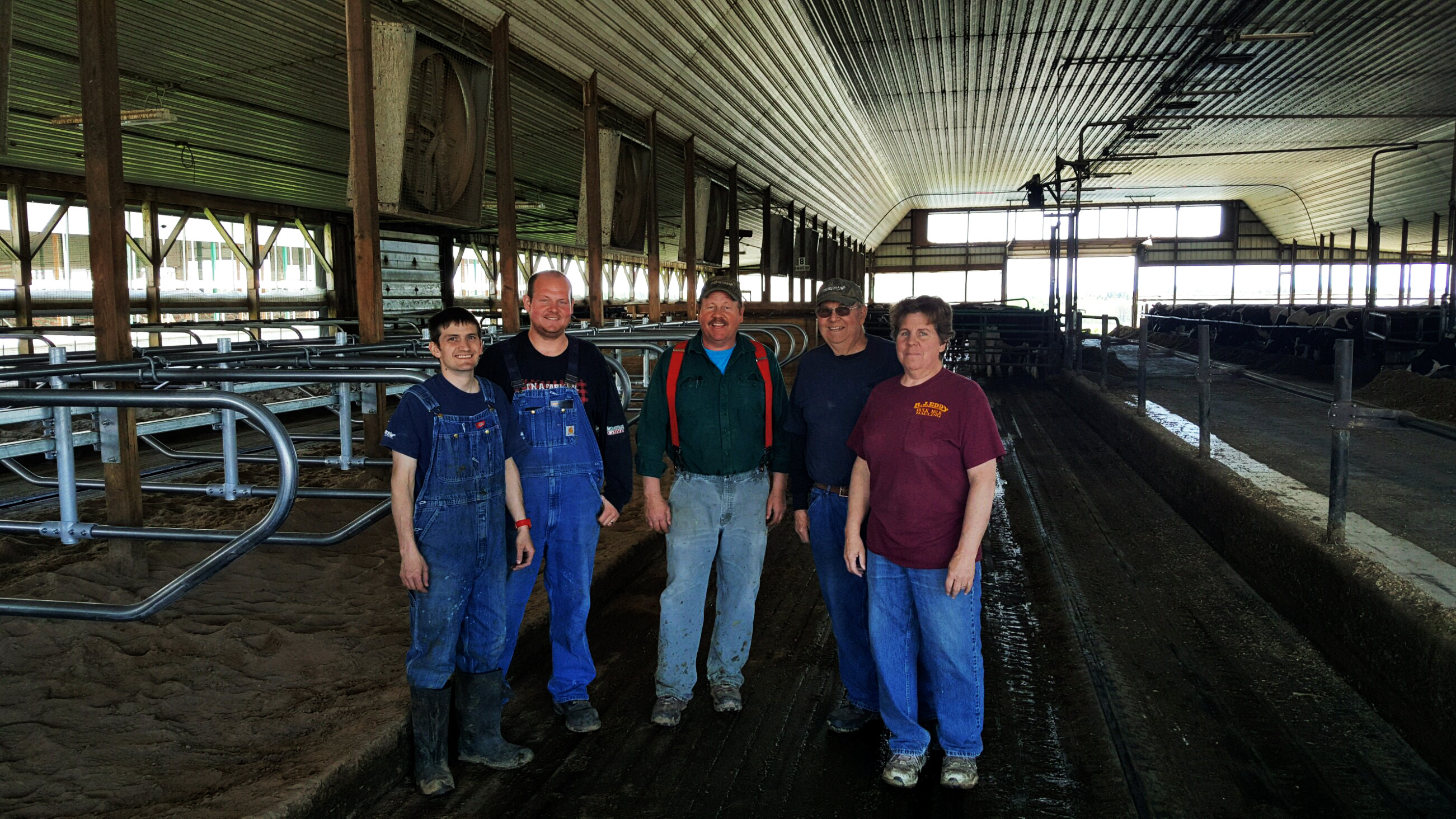
The Dimock Farm team, from left, Greg Palmer, Sam Dimock, Bruce Dimock, Don Dimock, and Anne Farrell.
Looking toward the future
Like many farms, the project list never ends at Dimock Farms. This year the Dimocks will be growing some of the winter rye cover crop into the summer and harvesting the straw before rotating the field to alfalfa, which will be a new endeavor for the farm. This straw, like the dry hay they feed currently, will be finely chopped in the field, or baled and later ground with the chopper, and then fed in the pre-fresh and fresh cow rations.
The next major facility improvement will be replacing the 15-year-old stall loops in the old barn early in the summer of 2017. The new loops will be mounted without channel iron and designed for cow comfort. Also in the upcoming future, they plan to upgrade from flat grain storage to upright bins, which will reduce grain shrink and improve loading accuracy.
Today more than ever, every small detail counts towards farm success. Everyone at Dimock Farms follows Don’s wise words, “Do everything as well as you can, every day. You can’t let anything slip.” Its attention to detail like this that allows Dimock Farms to optimize milk production, maximize cow health, and ensure financial sustainability today and long into the future.

poulingrain.com | 800.334.6731

